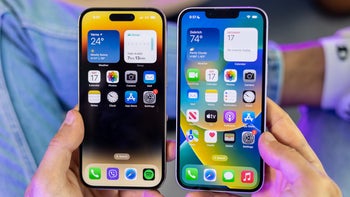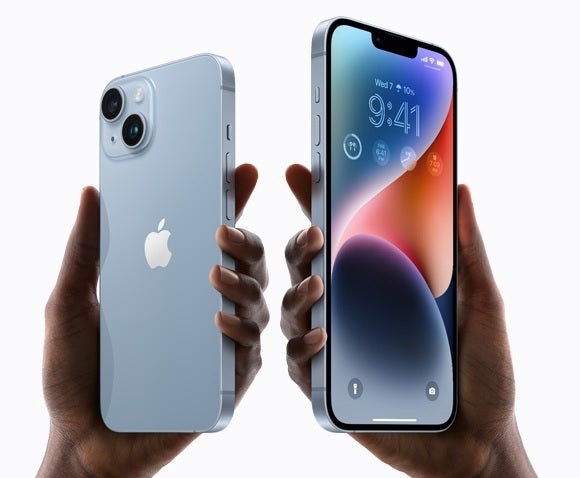Investment firm says demand for the basic iPhone 14 is modest and it has evidence of this

A lead time measures how long it takes from the moment your order is placed until the time that you receive it. Typically, the longer the lead time, the more demand outweighs the supply. We see this every year with iPhone pre-orders. The models more in demand take longer to arrive as buyers go through the initial supply causing later buyers to have to wait for backorders to be filled.
Demand for the iPhone 14 is "modest" says investment house JP Morgan
To help it keep tabs on the demand for iPhone models, investment house JP Morgan has a tool it calls the Apple Product Availability Tracker which looks at lead times globally and in various countries. The tracker, now in its sixth week, has been registering some changes recently which show that the global average lead time for the iPhone 14 Pro Max has been converging with the lead time for the iPhone 14 Pro. The current global lead times for the iPhone 14, iPhone 14 Plus, iPhone 14 Pro, and iPhone 14 Pro Max are currently 2, 2, 29, and 30 days respectively. The previous week, the numbers were 2, 4, 32, and 34 respectively.

Apple iPhone 14 and iPhone 14 Plus
The lead times for the iPhone 14 line (not including the iPhone 14 Plus which didn't get released until October) are lower than the equivalent lead times for the iPhone 13 series at the same stage of its release. Add to that a 2-day lead time for the iPhone 14 and you can see why JP Morgan called demand for the basic model "modest."
In the U.S., the lead times for the iPhone 14 Pro Max and iPhone 14 Pro weigh in at 32 days with the former dropping off from a high of 39 days. The iPhone 14 and iPhone 14 Plus both have lead times of two days. Last year at this time, the iPhone 13 and iPhone 13 mini each had lead times of approximately 11 days.
In China, the iPhone 14 Pro (22 days) and iPhone 14 Pro Max (29 days) trail the global averages. Lead times in China for the iPhone 14 and iPhone 14 Plus, both at 1 day, also trail the global average lead times and the 12 days for the iPhone 13 and iPhone 13 mini seen at the same stage of release last year.
Lead times for all three new Apple Watch models have dropped off
In the U.K. and Germany, the iPhone 14 and iPhone 14 Plus have next-day lead times which is less than the 11-day lead times that the iPhone 13 and iPhone 13 mini had at this stage of their releases in 2021.
AirPods Pro 2 global lead times are now down to 2 days on average compared with 3 days one week ago. As for the Apple Watch Series 8 and Apple Watch Ultra, their global average lead times have declined from 11 days and 25 days last week to 9 days and 24 days respectively. The Apple Watch SE has also had a decline in its global average lead time from 10 days to 9 days.
Apple will release its fiscal fourth-quarter earnings report on October 27th. The numbers are usually released between 4:30 pm-5:00 pm ET. JP Morgan sees Apple reporting a record $90 billion revenue total and earnings per share of $1.31. Apple's shares rebounded today by rising $4.03 (or 2.91%) to $142.41 in regular trading. After hours, the stock tacked on another $1.04 or .73% to $143.45. The 52-week high is $182.94 with the 52-week low at $129.04.
At its current stock price, Apple is valued at approximately $2.29 trillion. To put that in perspective, Google parent Alphabet has a market capitalization of $1.31 trillion, Microsoft is worth $1.77 trillion, and Amazon is worth $1.16 trillion.
On August 2nd, 2018, Apple became the first publicly traded U.S. firm to hit a valuation of $1 trillion. Just a few days longer than two years to the day, Apple became the first to reach a valuation of $2 trillion. And earlier this year (on January 3rd to be exact) Apple became the first U.S. public company to reach a valuation of $3 trillion.













Things that are NOT allowed: